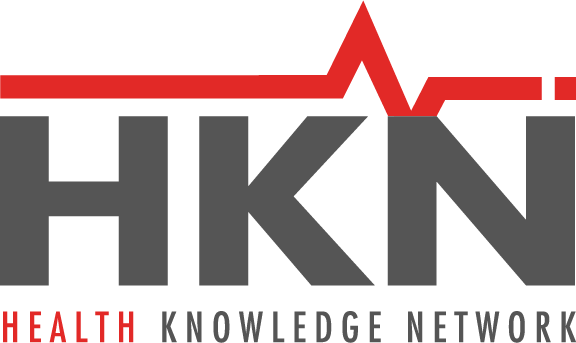
Celebrating 25 Years
January 2, 2020
2019 – Celebrating the People who have helped HKN Succeed
As a collaborative project of the University of Alberta Library and the University of Calgary Library, the HKN Office can be located at either of these post-secondary institutions, depending on where the General Manager is located. When HKN began in 1994, the office was located a …
Read moreDecember 9, 2019
2012: Alberta Health Services
In 2012, HKN becomes the licensing agent for Alberta Health Services’ Knowledge Resource Service, allowing AHS to extend its existing health region agreement to every hospital in the province. While HKN has been the primary licensing agent for the Alberta health regions since 200 …
Read moreOctober 15, 2019
2009: HKN studies inequalities in access
In 2007, HKN begins a joint environmental scan with SEARCH Custom and IRREN (Inter-Regional Research and Evaluation Network) to investigate the differences in access to health information resources in Alberta, particularly between its five rural and two urban health regions. Thei …
Read moreSeptember 30, 2019
2008: Evidence in Complementary Medicine
In April 2008, HKN co-hosts a symposium on complementary and alternative therapies in medicine with the Southern Alberta Health Libraries Association and the Northern Alberta Health Libraries Association. Speakers discuss how complementary medicine is integrated into traditional …
Read moreSeptember 16, 2019
2007: Expansion into Manitoba
The University of Manitoba becomes the first organization in Manitoba to subscribe to HKN, effectively making Manitoba the third province to join HKN. It licenses Ovid’s LWW Total Access Collection, a full-text collection of key health journals. This sparks the beginning of other …
Read moreSeptember 3, 2019
2005: HKN, Canadian Health Libraries Association, and the Canadian Virtual Health Library
Throughout its entire 25 years in operation, HKN has advocated for provincial and national licensing initiatives. It engaged Lori van Rooijen from Larkspur Associates Inc. to investigate several initiatives, such as provincial licensing. In May 2005, the HKN Partners meet with th …
Read moreAugust 19, 2019
2004: Needs Assessment Report
In response to a number of requests to expand and review the services it offers, HKN engages Lori Van Rooijen of Larkspur Associates Inc. in 2003 to complete a provincial needs assessment. This comes ten years after HKN’s launch as a grant-funded project, and a year after it beco …
Read moreAugust 8, 2019
2004: HKN Celebrates its 10th Year in Operation
In October 2004, HKN holds a one-day conference to celebrate its 10th year in operation. The conference brings together library stakeholders from all sectors to discuss the current and future context for health information. The keynote speaker is Dr. Sherrilynne Fuller, then Dire …
Read moreJuly 22, 2019
2003: Negotiations with SHIRP
In 2003, HKN welcomes the University of Saskatchewan as a subscriber, paving the way for the Saskatchewan Health Information Resources Program (SHIRP) to join in the following year. Through the SHIRP subscription, Saskatchewan is able to extend e-health resources to its Universit …
Read moreJuly 8, 2019
2003: Exploring point-of-care tools
In 2003, HKN demonstrates Skolar MD at its Annual General Meeting in Calgary. This is HKN’s first look at an e-resource that is neither an e-journal or an e-book, but rather a “clinical information tool” that answers clinical questions at the point-of-care. Now ubiquitous, these …
Read moreJune 24, 2019
2003: Speaking about Consortia
In 2003, HKN participates on a panel at the CHLA/ABSC Annual Conference in Edmonton on Consortial Deals: Best Practice or Blind Ambition? Moderated by Jessie McGowan, panelists discussed whether consortial deals are the best way to achieve results for libraries and whether they a …
Read moreJune 10, 2019
2002: Technological Advances
In 2002, HKN retired its mirrored servers at the University of Alberta and the University of Calgary, and the CD-ROM technology that was used to deliver its resources to libraries across Alberta, and migrated to a web-based system accessible via IP-authentication. Its offerings g …
Read moreMay 27, 2019
2002 – Curriculum Redevelopment Fund video
In 2002, HKN receives funding from the Alberta Government’s Curriculum Redevelopment Fund to produce a video on its work to connect health care practitioners, educators, and researchers in Alberta to the information resources they need to provide evidence-informed care. HKN engag …
Read moreMay 13, 2019
Search Process Graphic
In 2001, HKN submits a proposal for a Curriculum Redevelopment Fund Initiative grant through Alberta Learning. The grant proposal includes the development of an online training package that consists of a “search process” graphic and a video describing HKN’s work to enhance practi …
Read moreMay 3, 2019
Health Consortia Across Canada: Challenges and Opportunities
HKN will convene a panel at the CHLA/ABSC Annual Conference in Ottawa on how consortia have changed the library landscape in Canada on Friday, June 7, 2019. Join HKN General Manager Vivian Stieda, eHLBc Manager Leigh Anne Palmer (BC), HSICT Executive Director Lori Anne Oja (Ontar …
Read moreApril 24, 2019
1997: Deciding on a Slogan
HKN considers several slogans for its service, including the following: Creating new knowledge for health University connection for life The school that never stops Information for those who care Health Information: From Alberta’s Universities to You We achieve more together If “ …
Read moreApril 11, 2019
1999: HKN adds Calgary Regional Health Authority & expands into Saskatchewan
On June 1, 1999, Regina Health District becomes the first organization and first regional health authority in Saskatchewan to sign on as an HKN subscriber. By November 1999, the Calgary Regional Health Authority (CRHA) follows the lead of the David Thompson Health Region and beco …
Read moreMarch 29, 2019
1997: David Thompson Health Region
After 3 years in operation, HKN gets its first large-scale subscriber. David Thompson Health Region becomes the first regional health authority (RHA) in Alberta to become an HKN subscriber in March 1997. Prior to this, subscribers to HKN only included individual hospitals and dep …
Read moreMarch 4, 2019
1997-1999: Planning
After the Alberta Health Knowledge Network’s founding in 1994, a management group is struck to explore and make recommendations on how HKN should move forward from a grant-funded project to a self-sustaining entity. Librarians and stakeholders from the University of Alberta and t …
Read moreFebruary 19, 2019
HKN Governance
As a collaborative partnership between the University of Alberta and the University of Calgary, HKN is governed by two Partners and three Executive Committee members. The Partners are the Chief Librarians at the University of Alberta and the University of Calgary. They set the mi …
Read moreFebruary 4, 2019
HKN’s evolving logo
Did you know that the HKN logo and word mark are registered with the Canadian Intellectual Property Office? The logo features HKN’s name, or word mark—a logo that makes use of its text to express what its company does, both as an acronym and spelt out in full. The original logo w …
Read moreJanuary 21, 2019
Creation of an Alberta Health Knowledge Network
The Health Knowledge Network’s initial goal is to provide 24- hour electronic access to health sciences databases to the faculty, staff, and students at the Universities of Alberta and Calgary, and at the teaching hospitals. Access to the resources would then expand to Alberta co …
Read moreJanuary 7, 2019
HKN Begins
In spring 1994, the Alberta Heritage Foundation for Medical Research (AHFMR) awards the University of Calgary and the University of Alberta a $248K grant for the creation of an Alberta Health Knowledge Network. Supporters, including the Universities of Alberta and Calgary, severa …
Read more